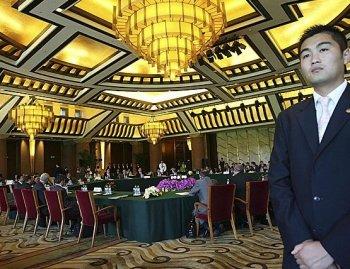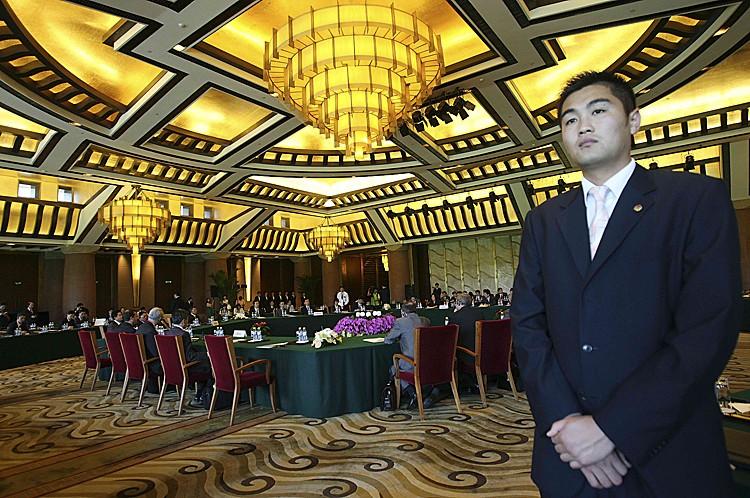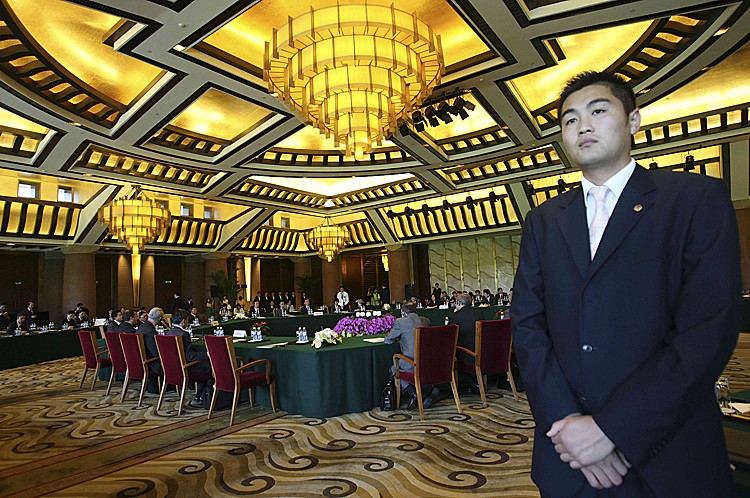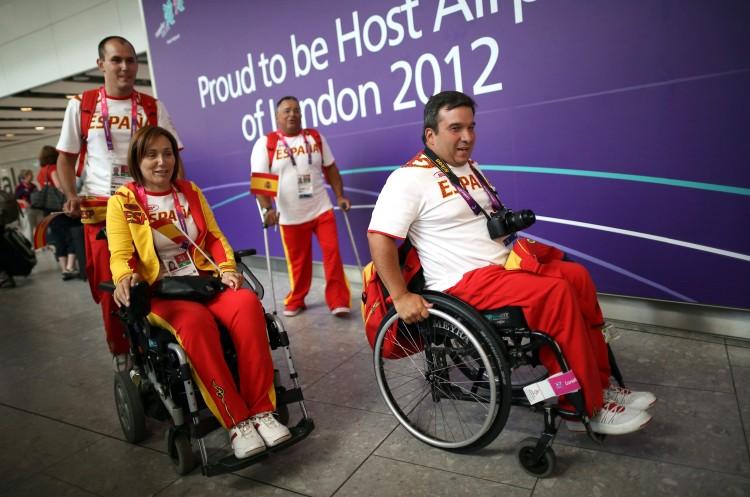Little Expected From Next Round of Six-Party Talks on North Korea
North Korean leader Kim Jong-il is returning to North Korea after meeting with Russian President Dimitri Medvedev on a military base in eastern Siberia. The discussions were focused on economic projects and on reviving stalled talks on North Korea’s nuclear program.

LAST ATTEMPT: A Chinese security personnel looks on during six-party talks on the North Korea nuclear issues. The last round, which ended in failure, were held in July 21, 2008 in Beijing, China. Ng Han Guan-Pool/Getty Images
|Updated:





